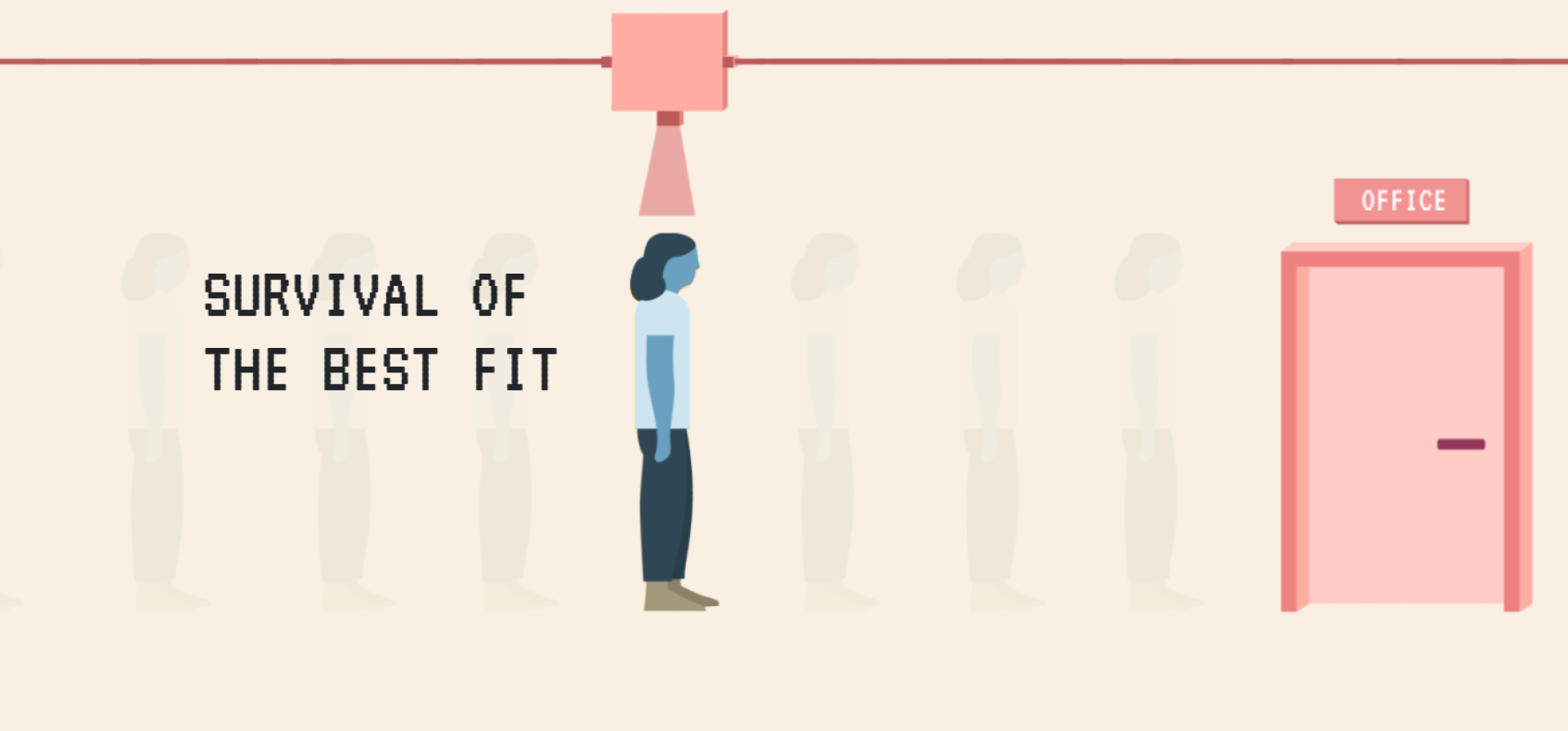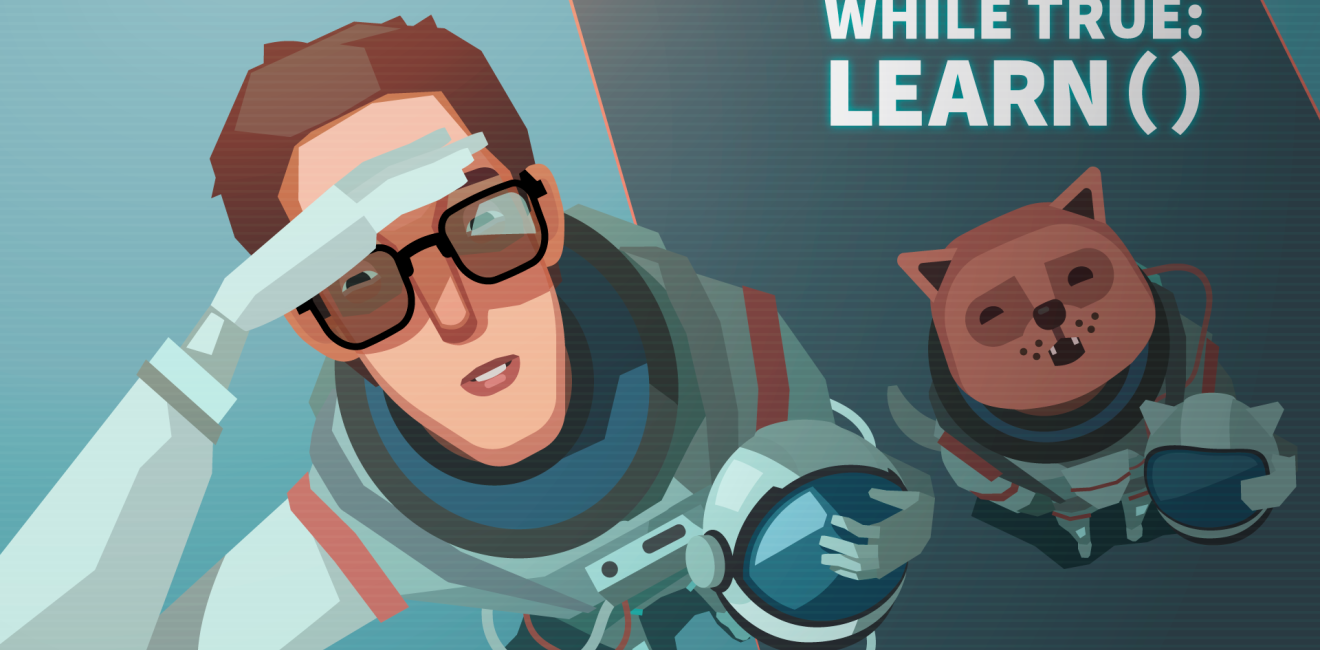
A blog of the Science and Technology Innovation Program
Artificial Intelligence (AI) is an overarching concept for computer systems that develop human capabilities like movement, visual perception, speech recognition, and decision-making. Despite the range of opportunities and sectors in which AI is positioned, a Pew Research study found that only 53% of global publics think AI is a "good thing" for society; 33% think it is bad for society. Pew observed that those with higher education (college education or above) were more likely to see artificial intelligence as having a positive impact on society.
Part of the obstacle with AI is, for many, it is an abstract concept. The definitions of what is AI and how it works are often fuzzy, particularly for those not deeply involved in the industry. After all, most consumers interact with AI through software touchpoints, never having to see what's behind the interface.
For this Games Round Up, we wanted to gather up some learning tools that help make AI more accessible for all ages. We found games that attempt to build learning around artificial intelligence in two ways. The first is the science behind artificial intelligence: how machine learning works, how it is built, and how it influences our day to day. The second way is the ethics of artificial intelligence and the role that AI plays in society. How can people work alongside artificial intelligence; how does algorithmic bias happen and what does it mean?
Mechanics of Machine Learning
while True: learn() (2019)
($15; Steam; Desktop, Mac, or Linux)
while True: learn() is a game about machine learning and data science that puts the player in the role of a machine learning specialist. The game is based around visual programming puzzles (presented as freelance jobs) designed to teach the player to think in terms of a machine learning specialist without having to actually learn to program. Players will find themselves developing software for autonomous vehicles, manufacturing toys, surveying consumer tastes, and rigging elections. Each puzzle is tied to a real-world application of AI, with a rundown of how that tool is used or operates in the real world, and information on the field of machine learning itself is offered intermittently. Further, the game’s primary reward mechanism is buying new outfits for the player’s hyper-intelligent programmer cat--who could say no to that? Luden.io, the developer of the game, has also recently released the game Learning Factory, which tackles the topic of automation.
Quick, Draw! (2016)
(Free; Browser)
Players are given a prompt to draw something in twenty seconds, with commands ranging from “raccoon” to “microwave” to “ear.” While they draw, the program is making constant guesses. If it guesses within twenty seconds, it’s considered a win. Afterward, players can see what the other guesses it had in store were, and what examples the program is comparing the drawings to to find its solutions. Beyond this game, Google’s AI Experiments include an orchestra conducted with a webcam, a “teachable machine,” a handwriting generator, and more. These experiments are illustrative not of what AI could do tomorrow, but what they’re doing right now. They can be used to teach specific lessons, such as what neural networks see in a webcam. Individual experiments are typically paired with explanations of what technology is at play, such as an explanation of machine learning and language in the “Talk to Books” experiment.
Ethical Considerations of AI

Survival of the Best Fit (2019)
(Free; Browser)
In Survival of the Best Fit, players take on the role of a hiring manager at a new start-up. The challenge: hire as many valuable employees as possible. The trick comes in when player choices are used to teach a hiring algorithm what traits to favor. The player’s bias, conscious or not, is amplified by a system hiring much more and much faster than they, themselves, did. Gabor Csapo, Jihyun Kim, Miha Klasinc, and Alia ElKattan met in a Politics of Code class at NYU Abu Dhabi, where they took an interest in the issue of algorithmic bias. Their website includes some educational resources that cover exactly this subject and give a brief overview of the issues at hand, and the game was supported by the Mozilla Foundation. Algorithmic bias is a subject of particular concern in artificial intelligence education--the Beijing Consensus on artificial intelligence and education calls special attention to gender bias in AI and the importance of teaching it and the Wilson Center’s own Dr. Anne Bowser has written on racial bias in facial recognition. Survival of the Best Fit illustrates the problem better than most, and does it in six minutes.
Eliza (2019)
($15; Steam; Windows, Mac, Linux; Rated M for Mature)
Eliza is a visual novel style game that addresses mental health, software development, and how artificial intelligence can factor in. The player plays as Evelyn, a “proxy” for the counselor program Eliza. In this capacity, Evelyn is essentially a messenger that relays the words offered by Eliza to patients. As the game shows, a large part of AI is the efficient management and analysis of large amounts of data. Eliza, the AI, collects and processes a wealth of data from the patient’s biometrics to their responses to questions. It shows how an AI can use this information to prescribe solutions - some better than others, with Eliza’s decisions often lacking in compassion. The game is something of a successor to ELIZA, a natural language processing program that mimicked the exchange between a patient and a Rogerian therapist, with the program effectively rephrasing the “patient’s” sentences. The creator of the original ELIZA, Joseph Weizenbaum, held the view that computers were able to take the computational action of “decision” but unable to “choose” with judgment as a human is able to. Though they do not provide educational/curriculum resources, the game coincides well with any curriculum covering future roles of artificial intelligence in daily life. Counseling, specifically, has already been explored as a place for AI development. The developer, Zachtronics, has produced other games related to engineering and programming. Educators are invited to contact them for copies of their games; the link to the page with the process, as well as game summaries and content descriptions, can be found here.
Tacoma (2017)
($20; Steam, Desktop; Rated M for Mature)
In Tacoma, players are tasked with investigating an apparently abandoned space station in the year 2088. Over the course of the game, players learn what happened to the crew and how ODIN, the onboard artificial intelligence, attempted to intervene to assist. The station can be investigated using an augmented reality device that allows them to view recordings of conversations and uncover clues to progress further in the ship and find ODIN, the ship’s governing AI. Beyond this primary plot, there’s an exploration of AI’s role in daily life aboard the ship and beyond. Tacoma is not necessarily intended for education but nonetheless gives life to the concepts of AI/human cooperation and is intended to promote public good.
The Turing Test (2016)
($20; Steam, Desktop; Rated Teen for Mild Violence)
Developed by Bulkhead Interactive, The Turing Test is a game that puts you in the role of one of the first astronauts sent to the moon, Europa, left in a state of hibernation while her colleagues were sent to conduct research. Accompanying the astronaut is an artificial general intelligence tasked with their management. While tackling puzzles and attempting to unravel the mystery of what happened to your crewmates, the player is introduced to philosophical arguments surrounding AI artificial intelligence. These range from the titular Turing test and its components and counters to the debate over human spaceflight. Though not designed as an educational game and lacks accompanying resources, it illustrates its topics well.
Content warning: the game’s conclusion involves a life or death decision, though it is without blood. The game itself is rated “teen” for “mild violence.”
Additional Resources
Research
There’s a wealth of academic research on the subject of AI education; here are some examples.
- MIT AI Learning Units caters to the creation of an AI curriculum for K-12 students, with accompanying research articles organized by grade level.
- Challenges and Opportunities in Game Artificial Intelligence Education Using Angry Birds, a study from Sejong University (2015) by Professors Du-Mim Yoon and Kyung-Joong Kim
- Teaching AI to Explain its Decisions Using Embeddings and Multi-Task Learning (2019) by Noel C. F. Codella, Michael Hind et al., of Microsoft and IBM research respectively, examines how to teach about AI with a goal of explaining the decisions behind the AI, is available through arXiv
This post is intended for educational purposes only. This is a sample of the field and not a comprehensive list. We have not vetted all of these experiences and games, but have in some cases relied on reviews and publications surrounding them. Being included on this list is not an act of endorsement by the Wilson Center, Science and Technology Innovation Program, or Serious Games Initiative. Did we miss a game? Email us at games@wilsoncenter.org
Authors



Serious Games Initiative
The Serious Games Initiative communicates science and policy complexities through the world’s most dynamic medium: gaming. Read more


Science and Technology Innovation Program
The Science and Technology Innovation Program (STIP) serves as the bridge between technologists, policymakers, industry, and global stakeholders. Read more





